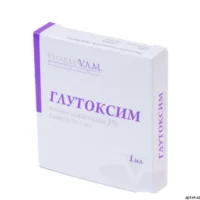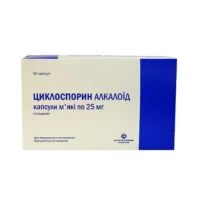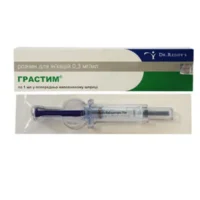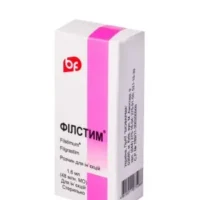Description
Redivek (imatinib) Hard Capsules 400 mg. №30
Ingredients
- Each hard capsule contains 400 mg of imatinib.
Dosage
- The recommended dosage of Redivek is determined by a healthcare provider based on individual factors.
- It is typically taken once daily with a full glass of water.
Indications
- Redivek is indicated for the treatment of certain types of leukemia and other cancers.
- It works by interfering with the growth of cancer cells.
Contraindications
- Do not take Redivek if you are allergic to imatinib or any other ingredients in the capsules.
- Inform your healthcare provider about any medical conditions or medications before starting Redivek.
Directions
- Follow the instructions provided by your healthcare provider for the best results.
- Do not crush or chew the capsules; swallow them whole with water.
Scientific Evidence
Imatinib, the active ingredient in Redivek, inhibits specific enzymes critical for the growth and survival of cancer cells. Studies have shown significant improvements in survival rates and quality of life in patients with certain types of leukemia and gastrointestinal stromal tumors (GIST) when treated with imatinib.
Additional Information
- Attend regular follow-up appointments to monitor your response to the medication and any potential side effects.
- Contact your healthcare provider immediately if you experience severe or persistent side effects.
Imatinib is a targeted therapy that specifically targets cancer cells, minimizing damage to healthy cells and potentially reducing side effects compared to traditional chemotherapy. Discuss the risks and benefits of treatment with your healthcare provider.
Redivek (imatinib) hard capsules 400 mg. №30 offer a promising treatment option for certain types of leukemia and other cancers, supported by scientific evidence and targeted pharmacological action.





